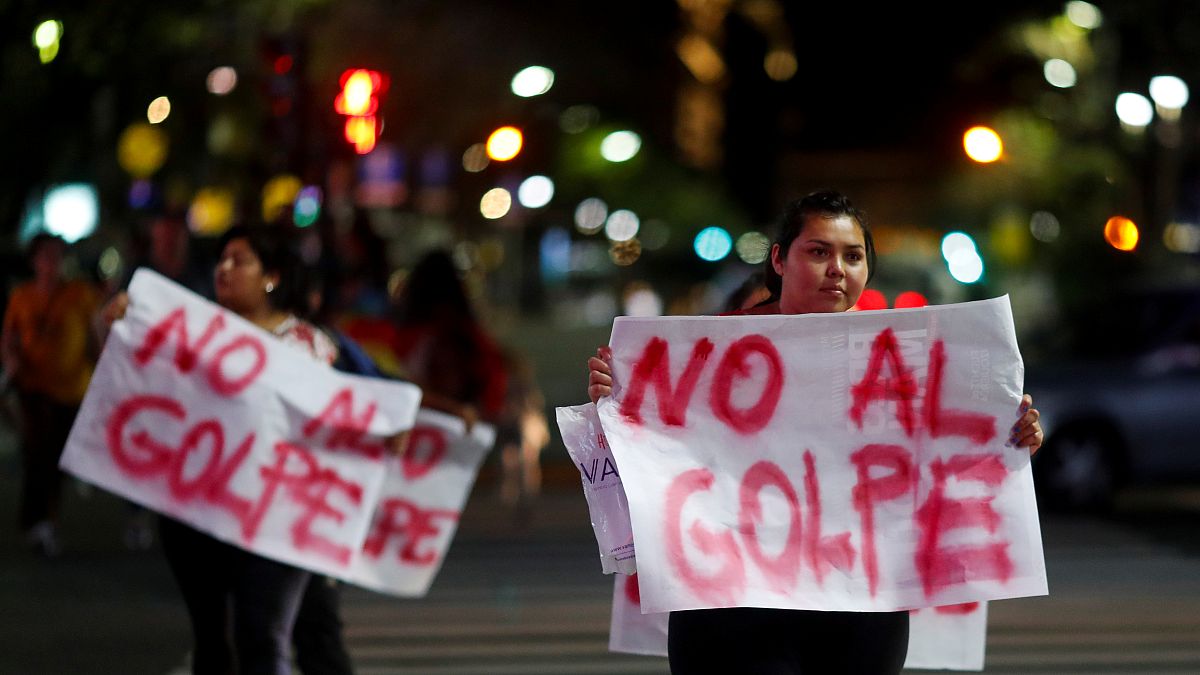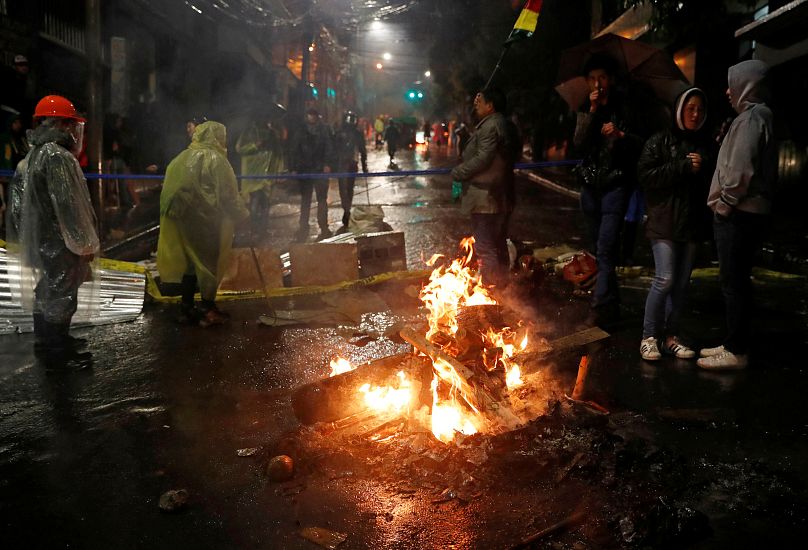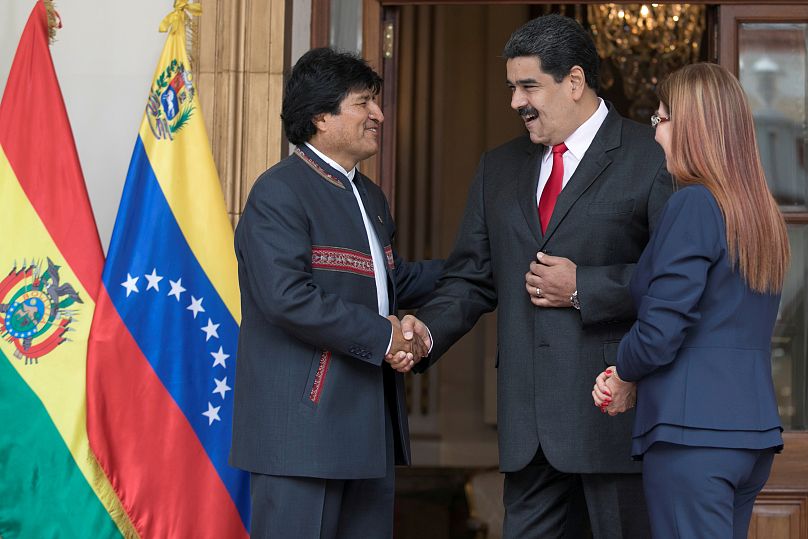Morales said he was resigning to ease violence that has gripped the South American nation since the last election in October, but he stoked fears of further unrest by saying he was the victim of a "civic coup" and faced arrest.
Bolivia's former president Evo Morales accepted political asylum in Mexico after the country's military suggested he resign to ensure national stability after 18 days of unrest.
The veteran socialist stepped down late on Sunday, stating he was resigning to ease violence that has gripped the South American nation since the last election in October.
But he stoked fears of further unrest by saying he was the victim of a "civic coup" and faced arrest.
A fourth election, a victory claim and an incomplete vote count: Why Bolivians are calling fraud
Mexico late on Monday granted asylum to Morales, who issued a plea through Twitter for "dialogue and consultation." Morales later tweeted that he had accepted asylum in the country.
"It hurts to leave the country for political reasons, but I will always be there. Soon I will return with more strength and energy," he said.
Mexico's foreign minister Marcelo Ebrard tweeted a photo of Morales on a Mexican air force plane, writing: "your life and integrity are safe."
In the video above, we show how the so-called "coup d'etat" has generated a strong division among the world's political leaders. Political authorities from Venezuela, Cuba, Russia and Syria have shown their support to Morales and claimed that there has been an orchestrated coup in Bolivia.
"We have seen world political leaders, not only South American talking about a coup d'état in Bolivia", Bolivian expert in Political Science, Marcelo Arequipa told Euronews. Some European examples are British Labour leader Jeremy Corbyn or Spanish Podemos leader Pablo Iglesias.
Arequipa claims that, academically, what happened in Bolivia is a coup d'etat. "Someone who has tanks and weapons cannot suggest a civilian to resign".
According to the expert, the events match the definition of a coup d'etat: "Those who control the use of repression and violence rebel against the constituted power". However, Arequipa claims that this coup d'etat emerged from a state crisis and a popular uprising that was calling for Morales resignation.
A coup d'etat backed by society?
The Organisation of American States (OAS) concluded on Sunday that the election should be annulled after it had found "clear manipulations" of the voting system that called into question Morales win, with a lead of just 10 points over main rival centrist Carlos Mesa. Had the margin of victory been one point fewer, a second vote would have been called.
Morales won the elections on October 20, thus renewing his fourth term in office. However, rumours of electoral fraud tarnished the leftist leader's controversial victory.
The country has experienced 18 days of intense protests against the president that culminated this week with police mutinies in some of the country's main cites.
In one of Bolivia's administrative centres, La Paz, the police read a manifesto in front of the Government's headquarters: "The police do not serve any political party, that is why they join the struggle of the people".
Venezuelan opposition leader Juan Guaidó has described the political shift in the neighbouring country as a "democratic storm". Also, contradicting Morales' story, Bolivian police denied that there is a warrant out for his arrest, as he claimed on Twitter.
"I want to let the Bolivian population know that there is no arrest warrant for state officials such as Evo Morales and his cabinet ministers," national police commander Yuri Calderón told local media.
After Morales' resignation, La Paz was rocked by violent clashes with buildings set on fire. Gangs roamed the streets, looting businesses and setting fire to properties. Prominent opposition figure and academic Waldo Albarracin tweeted that his house had been burned by pro-Morales supporters.
Thousands of pro-Morales marched towards the nation's legislative assembly on Monday, setting the scene for a potential showdown with opposition and police.
Similarities to Venezuela?
Last January, Guaidó proclaimed himself Venezuelan president and set free incarcerated opposition leader Leopoldo López, in what president Maduro described as a U.S.-backed coup. However, Guaidó has denied coup allegations to Euronews, declaring "his movement was made up of peaceful volunteers".
Guaidó only relied on a small military group and did not have the control of all the security forces. "In Venezuela, we find a different situation, as a great part of the police and the army support Maduro", Arequipa said.
The expert also noted that this could be an opportunity for the opposition party in Venezuela to try to take power.
Morales, a former llama herder and the country's first indigenous president, has been leader for nearly 14 years and is one of the most influential faces of Bolivarianism. His resignation could have a major impact in Venezuela, as Morales is the only leader in the region who has always openly shown his support to Maduro.
"Morales has been a firm supporter of Chávez and now of Maduro's government. Morales has criticised the U.S. and the EU for their sanctions and, in general, has promoted the same set of ideas about the crisis in Venezuela", said Tim Gill, a Venezuela expert at the University of North Carolina at Wilmington.


